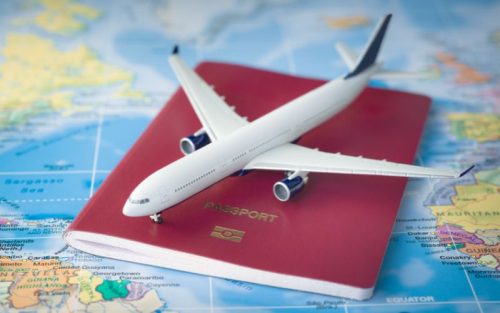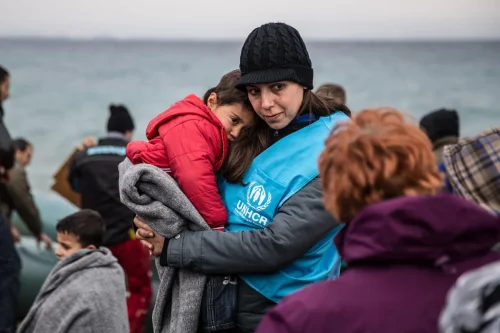Immigration To Canada

Business Class Immigration
Business Class Immigration allows experienced businesspersons primed to apply their financial capital and business acumen for national/regional economic development to reside in Canada. This opportunity includes the following subcategories:
- Investor Program:
The Immigrant Investor Program (IIP) invites experienced professionals to contribute to Canada’s growth and long-term prosperity by investing in the national economy. - Self-Employed Program:
A “self-employed person” is a foreign national who boasts relevant experience and the desire/ability to seek self-employment in Canada and significantly contribute to cultural endeavors, athletics, and/or farm purchase or management. - Start-up Visa Program:
This program aims to connect immigrant entrepreneurs with private Canadian angel investor groups/venture capital fund enterprises that have worked with start-ups in the past and can thus offer essential resources: encouraging these entrepreneurs to grow their businesses in Canada. Successful applicants link with private-sector organizations to receive funding and expert guidance while looking to launch/operate their Canadian company.
Economic Class Immigration
Foreign nationals granted permanent residency via an economic class category traditionally lend their expertise to the Canadian economy by using their skills, knowledge, expertise, and other assets to fill labor market shortages. The economic class includes the following subcategories:
- Federal Skilled Worker (FSW), Express Entry System
This program is assessed per point system eligibility criteria including education, skills, work experience, language aptitude, age, adaptability, and other qualifications necessary to contribute to the Canadian labor market. - Federal Skilled Trades (FST), Express Entry System
Though this program is not assessed on a point system basis, it includes “Skill Level B” occupations listed within the National Occupation Classification (NOC) matrix. - Canadian Experience Class (CEC), Express Entry System
This program is designed for international students who graduated from a Canadian post-secondary university and possess professional/managerial experience or skilled Canadian work experience for a minimum of 1 year (on a full-time basis). - Provincial Nominee Program (PNP), Express Entry System
This program gives provinces/territories the opportunity to nominate foreign nationals primed to apply for permanent residency, provided a series of corresponding eligibility criteria are met. - Quebec Economic Class
The province of Québec considers various factors when making these decisions, awarding points based on applicable considerations (e.g., one’s education, occupational skills, language proficiency, age, and the presence of any children).


Temporary Resident Visa/Permit
(TRV& TRP)
- Visitor Visa
This official Canadian visa office document goes into one’s passport as evidence that he/she fulfilled admission requirements as a temporary resident (visitor, student, and/or worker). - Super Visa
Parents/grandparents of permanent residents (or Canadian citizens) can enjoy up to a 2-year stay in Canada, per visit, with this enduring, multi-entry visa. It remains valid for up to 10 years, provided the passport does not expire within that timeframe. - Study Visa
One can apply for a study permit (spanning a duration of at least 8 months) after gaining entry into a designated Canadian educational institution. - Work Visa
Foreign workers typically need a work permit, with an employment offer from a Canadian enterprise often required before they’re granted a temporary permit from Employment & Social Development Canada (ESDC). - Permit Holder Class
Also known as a “minister’s permit,” a Temporary Resident Permit (TRP) allows foreign nationals to enter/remain in Canada in various circumstances (e.g., for medical treatment, in response to minor crimes, or to help human trafficking victims).
Refugees and Protected Person Class
The purpose of this program is to provide a means for people forced to flee their country of citizenship due to a substantiated fear of persecution to seek protection in Canada. To qualify, they must be located outside their home country and unable to return. It includes the subcategories below:
- Refugee inside Canada
This applies to people currently located in Canada who believe returning to their home country (or the country where they typically live) would put their safety at risk. As defined per the Geneva Convention, risks of persecution include the risk of torture, risk to one’s life, or the risk one may be subjected to cruel and unusual treatment/punishment. Anyone subjected to the same can seek protection in Canada as a refugee or protected person. - Refugee outside Canada
Anyone who arrives as a refugee from beyond Canadian borders may require a referral. The UN Refugee Agency (UNHCR), a designated referral enterprise, or a private, Canadian-established sponsorship can fulfill this need.


Family Reunification Class Immigration
This program—which gives a Canadian citizen/permanent resident the opportunity to bring close family members to Canada via sponsorship—includes the following subcategories:
- Spouse/partner/dependent children sponsorship
- Parent/grandparent sponsorship
- Adopted children/other relatives sponsorship

